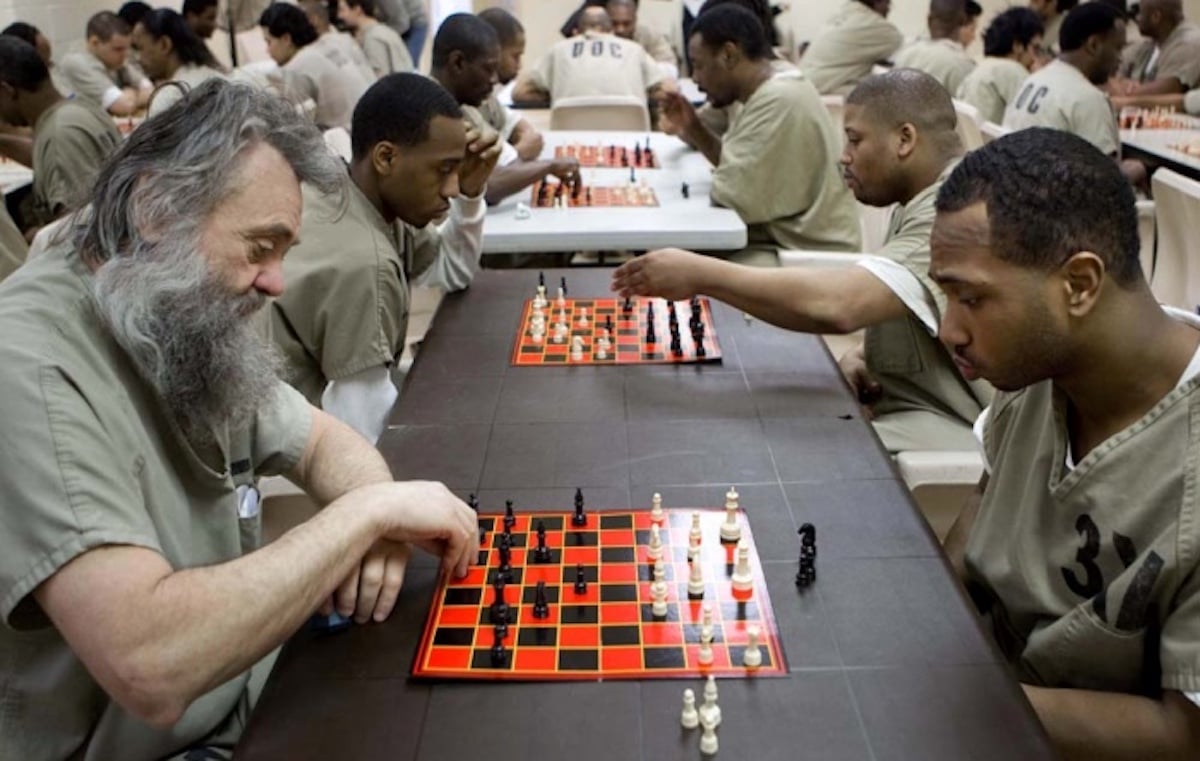Exploring the Most Popular Gambling Games Inside Prisons

Understanding the Appeal of Gambling in Prison
Spending time in prison poses significant challenges, with boredom often being one of the most daunting aspects. To counter this, inmates frequently turn to a variety of activities to keep themselves occupied-gambling being one of the most prevalent. Despite strict regulations prohibiting gambling in many correctional facilities, prisoners continually find innovative ways to place bets and organize games.
The reasons for gambling in prison go far beyond mere entertainment:
- **Killing Time:** With little to do, games offer a welcome distraction from daily monotony.
- **Income Generation:** Inmates’ prison jobs often pay extremely low wages-sometimes as little as $0.20 per hour or, in certain states, nothing at all. This lack of income can make it difficult for prisoners to purchase basic necessities, driving many to seek extra commissary items or money via gambling.
- **Social Connection:** Games provide opportunities to make friends, establish social standing, and even find protection within the inmate community.
For instance, one individual reported earning only $24 a month in his official role, compared to $173.25 a month (in commissary goods) as a prison sports bookie, highlighting the economic incentives to participate in gambling activities.
Top Gambling Games Favored by Inmates

While almost anything can be wagered on within a prison setting-ranging from sporting outcomes to board games-a handful of gambling games have gained notable popularity among inmates worldwide.
Pai Gow: A Dominoes Variation Behind Bars
Pai Gow, originally a Chinese casino game, has been adapted by prisoners into a dominoes-style game. In institutional settings, inmates often create their own game markings or occasionally forgo them to avoid detection. This flexibility allows for quick, stealthy gameplay that can be hidden from corrections officers with ease.
Poker: The Competitive Staple
Poker remains a top choice among incarcerated gamblers. Its competitive element often fuels tension, occasionally leading to disputes or even altercations. Still, the simple requirements-a deck of cards and a group of players-ensure the game is played extensively, even with tight oversight by guards. Poker not only provides a chance to win but also ranks inmates socially as the "best player" in the block.
Kaluki (Jamaican Rummy): Cards with a Caribbean Twist
Known as both Kaluki and Jamaican Rummy, this classic card game enjoys widespread appeal, particularly in Caribbean prisons but also elsewhere. The goal in most variants is to discard all your cards. Jokers serve as wild cards, which injects greater unpredictability and excitement into the game. Its easy-to-learn rules and minimal equipment make it a favorite for discreet sessions.
Blackjack: Fast-Paced and Simple
Blackjack's straightforward gameplay has made it one of the most enduringly popular casino card games within prisons. The ability to set up and resolve games quickly is advantageous in busy, monitored environments, and the game is often used for settling personal debts and wagers.
Craps and Dice Games: Lightweight and Concealable
Dice games, especially craps, are easily adaptable for incarceration settings due to the small size of the dice and their ability to be used for numerous betting activities. The simplicity of hiding dice makes them a particularly attractive option for inmates seeking quick games that can be started and stopped without notice.
Board Games as Betting Arenas
Traditional board games such as checkers, chess, and scrabble see new life in prison as platforms for betting. Although these were not originally intended as gambling activities, they are often played for stakes. Notably, while scrabble matches have been reported to spark conflicts, chess games-even those involving significant wagers-tend to remain peaceful.
Sports Betting: Organized Wagering
Placing bets on sports fixtures is a growing phenomenon in correctional facilities, especially as legal sports betting expands outside prison walls. Inmates often receive betting odds and outcomes through outside contacts or contraband communication. While organizing such pools involves risk and coordination, successful operations can provide both entertainment and substantial income for those who manage them.
Risks and Challenges of Gambling Behind Bars
Although gambling can provide a welcome escape from prison routine, it also brings a host of problems:
- **Escalation of Conflicts:** High-stakes games frequently lead to disputes, accusations of cheating, and sometimes violence.
- **Fueling Addictions:** Many inmates have gambling problems that predate incarceration, and continued betting inside can perpetuate addictive behaviors.
- **Involvement in Other Offenses:** Some prisoners are serving time for gambling-related crimes, and access to underground gambling may complicate their rehabilitation.
Despite efforts by corrections staff to curtail these activities, gambling is unlikely to disappear from prison life entirely. For many inmates, gambling offers a way to cope-helping them pass the time, make vital social connections, or supplement their sparse incomes in a demanding environment.
Lead image: International Chess Federation













